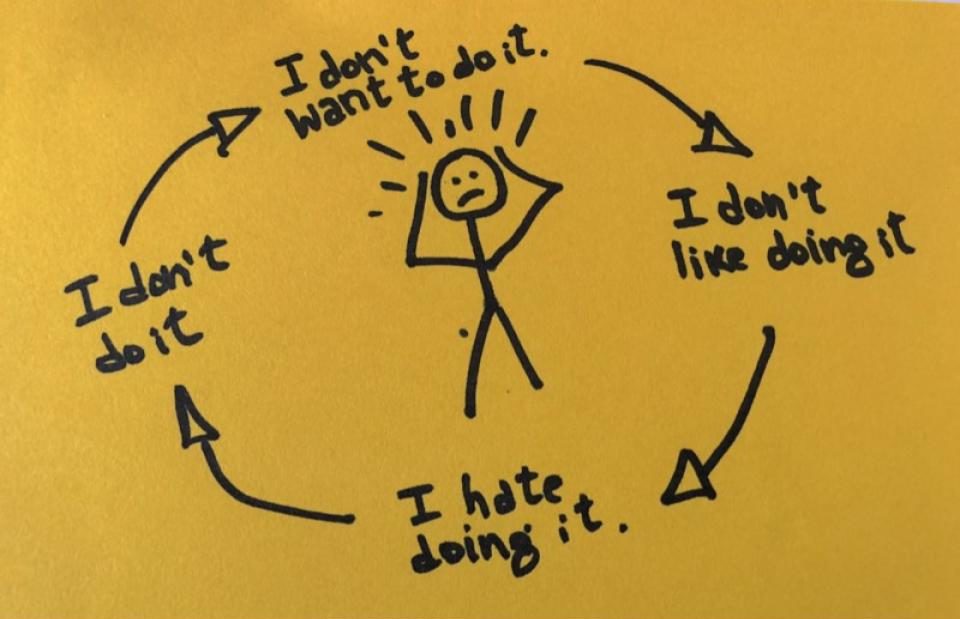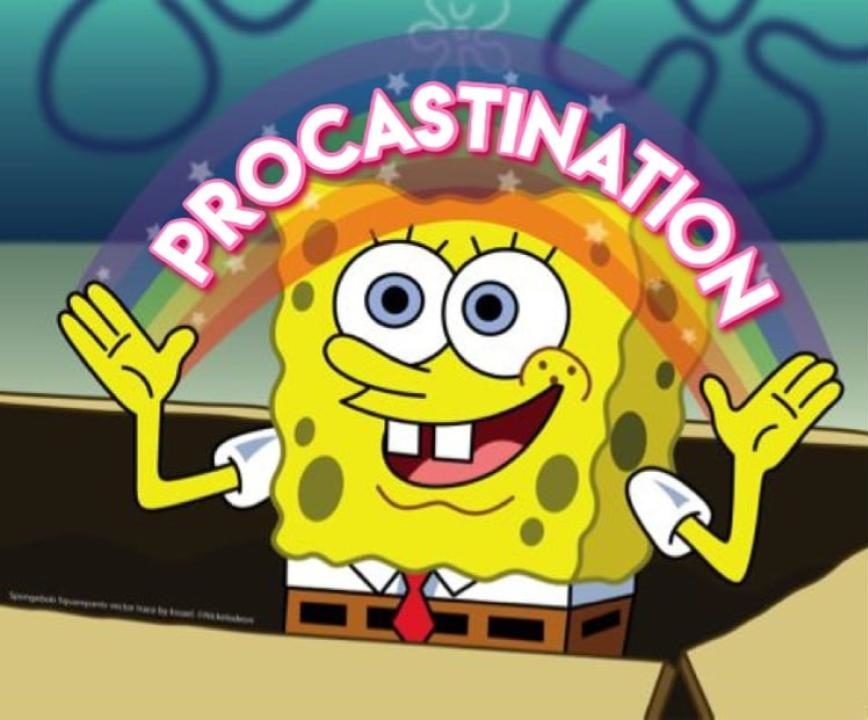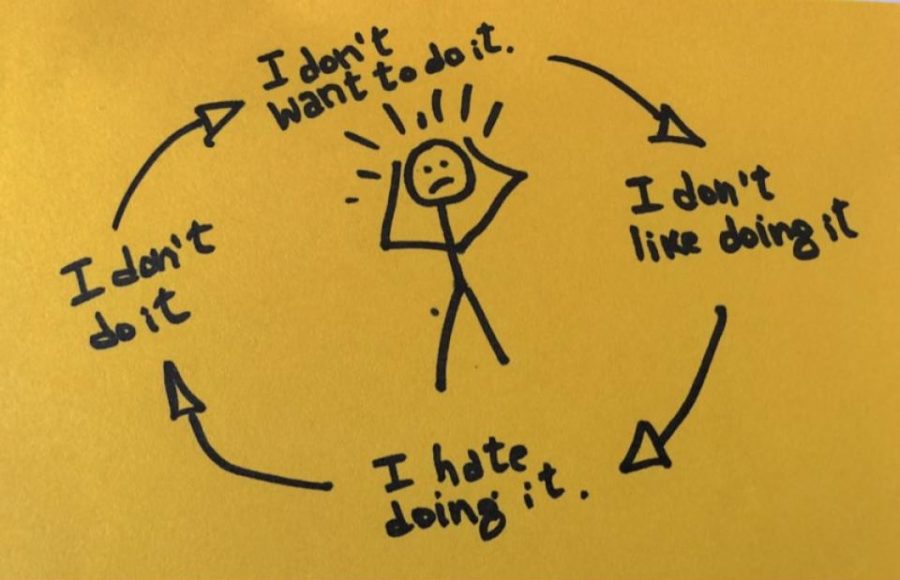Procrastination: Can it Actually Benefit Us?
Procrastination can play a significant role in an individual’s day-to-day. Although it has a bad reputation, could potential perks exist?
Work. It’s something that appears to never disappear. One wastes precious time and effort doing work, whereas spending it on more enjoyable pastimes, such as after-school activities, gaming, or socializing across the web seems more reasonable.

Some procrastinators leave their work until the deadline, facing the ticking clock as they frantically type on their keyboards and scribble words on paper. Procrastination generally gets a bad reputation because it causes deficiencies in performance with accompanied stress. Work completed in a rush tends to lack quality as well. Individuals often attempt to deviate from such adverse habits.
Ms. Costello, a Spanish teacher at Bethpage High School, is quite persistent with her work, avoiding procrastination whenever possible.
“I don’t really procrastinate that much,” she claimed.
However, she recalled a childhood incident from 3rd grade in which she left a dinosaur diorama uncompleted throughout winter break, which she hastily finished the day before the due date.
“I had the first night to do it,” she mentioned, “but I didn’t.”
Ms. Betrand-Loesch, a librarian at Bethpage High School, discussed how she experienced several “meltdowns” in college over her unfinished work, mentioning that some of her “trial and error” incidents for procrastination “backfired.”
But what if procrastination can benefit?

Despite several unfortunate outcomes, Ms. Bertrand-Loesch learned how to successfully merge procrastination into her everyday life.
“I feel I do my best when I’m stressed,” she asserted.
She seems to vibe with light procrastination; she believes her performance is optimal when experiencing stress. Ms. Bertrand-Loesch also mentioned an increase in creativity when finishing the work she procrastinated on. However, she does not support procrastination habits that leave an individual up “‘[until] 4 am in the morning. It doesn’t work.” Procrastination may also assist in time management, which can become useful when taking tests and fulfilling necessary tasks within a certain time frame.
Moreover, constricted time inclines an individual to stay more centered on their assignments; finishing their work becomes top priority before anything else. In turn, this may lead to the development of fantastic ideas related to the topic of focus. Procrastinators may also experience a surge of energy when dealing with procrastinated work because of eagerness to conclusively attack it down.

Increased organization of work might result from such behavior as well. For instance, during writing tasks, procrastinators may choose to quickly scheme a plan in their minds, considering which details to discuss in each paragraph and why.
Even though Ms. Costello does not often procrastinate—especially considering her unsuccessful encounters—she smiled when mentioning that her mother recalls the dinosaur diorama dilemma every time she does.
Navneet is a senior at BHS. This is her first year at The Eagle's Cry, but her writing expertise has elevated her to editor.





